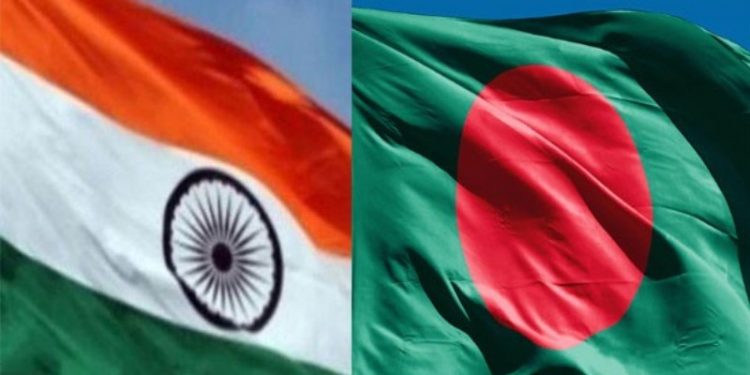There is no reason to be overjoyed, as many in India feel, over US President Donald Trump’s remark during a joint Press conference he held with Prime Minister Narendra Modi that he left the current state of affairs to be dealt with by the latter. This is more so after Trump’s right hand man, Elon Musk, sounded so enthusiastic over an invitation extended to him by the chief adviser of Bangladesh’s caretaker government Mohammad Yunus to visit his country and invest in his Starlink project. In fact, what Trump said was equivocation at its best. He said: “I will leave Bangladesh to the Prime Minister (Modi).” In simpler words, it could imply that India is left alone to deal with its problem and not expect any help from the US. Trump was asked a question on his administration’s stance on the ongoing turmoil in Bangladesh and the atrocities on minority Hindoos and Christians in the country. His assertion that the US “deep state” was not interfering in the affairs of Bangladesh, as alleged by the ousted Prime Minister Sheikh Hasina, does mean much as he is restating his Hands Off policy. To those, who believe what Trump meant was that India is free to act whichever way it thinks fi t vis-à-vis Bangladesh, are taking a too-charitable view of Trump’s remark.
In fact, Yunus’ attempt to bring Musk’s satellite internet service to his country is a well-calculated strategic move to seek US support to his fragile interim government. Musk has a highly visible White House role as President Trump’s right-hand man, where his meetings with foreign leaders have raised questions over the blurring of his official roles and business interests. During their lengthy video call, Musk and Yunus discussed the possibility of bringing Starlink, which provides internet access to remote locations by low Earth-orbiting satellites, to Bangladesh. They emphasised that the service would create new opportunities for “Bangladesh’s enterprising youth, rural and vulnerable women, and remote communities,” a statement from Yunus’ media office said.
The unrest in Bangladesh and the subsequent attacks on minority Hindoos were among the topics discussed by Modi with Trump. But, at the Press conference, Trump chose his words carefully to actually mean the US would not intervene in the political landscape in Bangladesh, which has undergone several changes following violent student-led unrest, leading to the fall of the Sheikh Hasina government. The most likely interpretation of his remark that he would leave the matter of Bangladesh to India would be that instead of him, Modi should take a call on the issue, since he does wish to get involved. In fact, the issue did not feature in the joint statement at all. The upshot of this is that Trump has no intention to be convinced by Modi to take a strong public stance critical of Bangladesh’s interim government. This is music in the ears of Bangladesh since it is in tune with the enthusiasm shown by Musk to invest in Bangladesh.
Yunus and his colleagues have their jobs cut out. There is an increasingly urgent need for them to reach a consensus on the overall reform package and timing of elections. The release of a UN report on the current state of affairs in Bangladesh stating the Opposition voice is being ruthlessly suppressed has already put Bangladesh in a spot of bother. Significantly, Modi avoided addressing the issue and did not say anything about Bangladesh. He seemed to have realized about Trump’s desire not to be dragged in to that issue and therefore thought it expedient to keep mum on the Bangladesh question. Observers would notice the earlier Trump-Modi warmth has completely evaporated in today’s Trump 2.0 version.
Also Read: Delta jet flips upside down on a snowy Toronto runway; all 80 aboard survive
Six months after the ouster of the Hasina government, Bangladesh is yet to have a stable political order. The lawlessness across the country was once again in full view on 5 February when a mob demolished the residence of Sheikh Mujibur Rahman following reports of Hasina, who is in exile in India, planning to broadcast a speech on the day. Protesters circulated their plan online to destroy the Bangabandhu Memorial Museum. Using excavators and bulldozers, they unleashed the attack on the building in the presence of security personnel, where the father of the nation was assassinated in 1975. The complicity of the caretaker government in the vandalism was clear.
One reason for the present administrators’ confidence could be that they can get away with their failures to tame the fundamentalists at work in Bangladesh is the overt and covert support he is getting from the US, notwithstanding Trump’s denial. If the future of Bangladesh gets murkier which it seems is very likely, it will be a constant reminder of the failure of India’s foreign policy and also a persistent security threat.







































